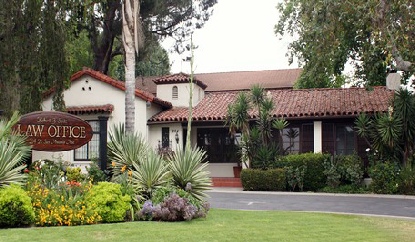

THE LAW OFFICES OF


Call 909.395.0909




Robert Spitz Real Estate Litigation Information Sheet
When two or more parties have a dispute about a real estate matter and cannot reach an agreement, filing a lawsuit or litigating the matter in court may be necessary. Sometimes an attorney may be able to bring the parties to an agreement prior to the filing of a lawsuit. If you are involved in any type of real estate dispute, or if a lawsuit has been filed against you, you may need the service of an experienced real estate lawyer. A knowledgeable real estate attorney advocates for clients in many different types of real estate disputes including, but not limited to, those that follow.
Having a Valid Real Estate Contract
A real estate contract is at the foundation of every real estate transaction. For any contract to be valid, several elements are required by law. The purpose must be lawful with parties who are legally competent. There must be an offer and an acceptance involved. The contract must also clearly explain consideration and the terms being exchanged. And finally, each party must knowingly give consent.
If any of these elements are not present, the contract may not be enforceable, misinterpretations may arise, and disputes may occur.
A misunderstanding between parties involved in real estate contracts is frequently the cause of a dispute. If you are entering any kind of buy/sell agreement or real estate lease, it is critical that you understand your rights and obligations prior to signing. Common litigation cases involving commercial and residential real estate contracts include disputes stemming from the following:
- Breach of Construction Contract
- Breach of Real Estate Lease
- Breach of Contract
- Construction Defect Claims
- Fraud
- Failure to Disclose Defects
- Specific Performance
- Failure to Perform
Understanding Construction Disputes
Disputes involving construction issues can become time-
Explaining Easement and Boundary Disputes
Disputes over easements arise when access to specific pieces of land is questioned. There are many types of easements which allow access to a property, including express easements, easements by necessity, prescriptive easements, and implied easements. Legal disputes over easements can ensue in a number of ways, including when a neighboring property is inaccessible; a piece of land has been utilized by another property owner for more than 5 years; and access to another’s property is required. Litigation over easement disputes may also stem from a utility company demanding access to a specific property.
Boundary disputes involving residential and commercial properties happen when boundary lines are in question, including when there is unauthorized use of a neighboring property, landscaping is out of control, and encroachment when unauthorized construction occurs on neighboring property.
Obtaining Compensation from Eminent Domain
When the government forces the sale of a private property to use in a public project, it is referred to as “eminent domain.” Also known as “condemnation,” this action is used by federal, state and local governments in a multitude of ways, including:
- Expanding an airport
- Building a new road
- Constructing a school
- Constructing or repairing a bridge
- Creating a community park
- Enhancing any public utility
- Installing transmission lines
- Creating transportation projects
- Installing new pipelines
- Beautifying the community
When a governmental agency attempts to acquire property through eminent domain, the government must offer “just compensation.” Litigation can occur when property values are disputed and a fair market price is not achieved. In these matters, the government must also show evidence that the named property is necessary to a specific project. This can also be the source of an eminent domain dispute.
Fighting Zoning & Land Use Laws
Laws regulating land use and zoning can dramatically alter the way a property can be developed. Purchasers of residential, commercial, and industrial properties should be aware of the restrictions placed on that land at the federal, state, or local level. Disputes often occur either in opposition or support of new construction.
When municipalities adjust local zoning ordinances and land use regulations, proper procedural notices are required. When these designations are changed, property owners may be dramatically impacted in a multitude of ways, including having to close a business, change the business model, and incurring tax implications.
Seeking Assistance from a Real Estate Litigation Lawyer
If you are currently involved in any kind of real estate issue, contact The Law Offices of Robert J. Spitz, by calling (909) 395-

204 N. San Antonio Ave.
Ontario, CA 91762
Phone: 909-
Fax: 909-
Email: TPLaw@aol.com


